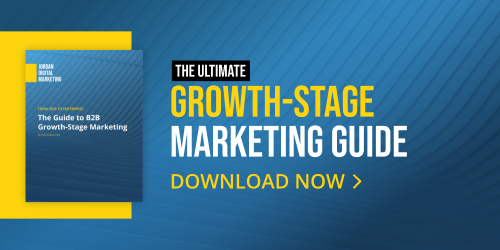How to Approach Testing Google’s Ad Advisor
I know what you’re thinking. “We see these posts. Every. Year. Each new year is going to be the year for voice search optimization.” But, hear me out…
What is the significance of voice search?
Recent studies claim that in 2024, voice search devices with assistants (like Cortana, Alexa, and Siri) will out-populate actual people: 8.4 billion devices to the estimated 8.1 billion human lives.
How does voice search impact SEO?
Users of mobile voice assistants and users of smart speakers (stationary voice-activated devices) aren’t looking for lists of the best possible answers to their queries any longer. They’re looking for the best actual, single answer to their questions, right away, without having to look at their screens.
As I mentioned in my previous blogs on voice search for SEO, this means that adding long-tail keywords, question phrases, and fact-checked information into your SEO strategy is a MUST in modern-day SEO strategies.
How else can you tap into voice search?
Businesses, specifically B2C, should also consider direct integrations with some of these voice assistants by creating a voice app. There’s no better way to implement VSO than to build an app and have your business show up on mobile devices that work with voice assistants. (Just to remind you, there are 8.4 billion voice assistants. Giving them all a more direct path to your business and what you’d like people to learn about it is a good idea.)
Does prioritizing VSO change your overall SEO priorities?
Along with developing keyword-research strategies to cover questions and long-tail keywords and considering shifting budget to build voice apps, a focus on VSO includes a couple of initiatives that may already be in your plans.
First, if you’re not already doing it, you need to pay attention to mobile speed and page performance, especially given the mobile-first updates to the Google algorithm.
Second, accessibility, specifically compliance with ADA website guidelines, needs to become a priority for sites in every vertical (two big bonuses: you’ll be among less than 10% of companies getting this right, and you won’t open yourself to lawsuits).
One other important note here: AI research and content creation won’t get it done when it comes to VSO. Consider the queries: they’re everyday questions that real people (maybe Grandma or Great-Uncle Bart, yelling at the Google Home they just got for Christmas) have in the course of a day. Voice search users aren’t looking for formulaic, five-paragraph-essay answers; they’re looking for short, to-the-point information that isn’t yet in AI’s wheelhouse. In this, VSO is no different than any other SEO or content initiatives produced by AI, which need to be QA’d and refined by actual humans.
The short story here is that the overall impact of VSO on SEO strategies is a positive one - it beefs them up and makes them better without disrupting any well-known best practices you’re already implementing.
If you’re looking for more advice on your approach to VSO from an agency that has handled many VSO campaigns, hit us up!
Tags:
Jan 23, 2024 12:15:20 PM


-Feb-02-2026-08-01-41-1973-PM.png?width=500&height=500&name=Regular%20Blog%20Hero%20(1)-Feb-02-2026-08-01-41-1973-PM.png)


-Jan-24-2026-05-33-11-5328-PM.png?width=500&height=500&name=Regular%20Blog%20Hero%20(1)-Jan-24-2026-05-33-11-5328-PM.png)